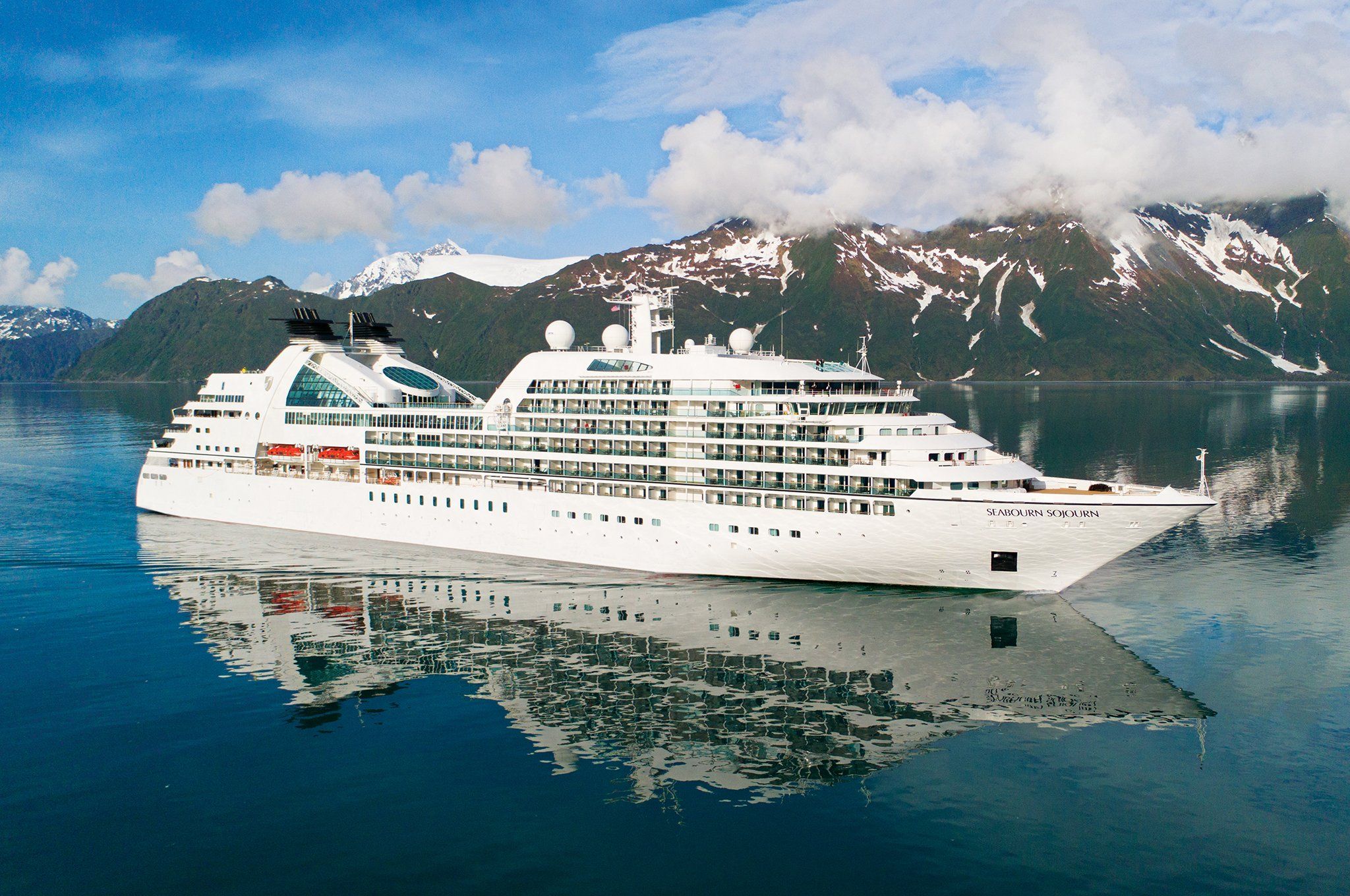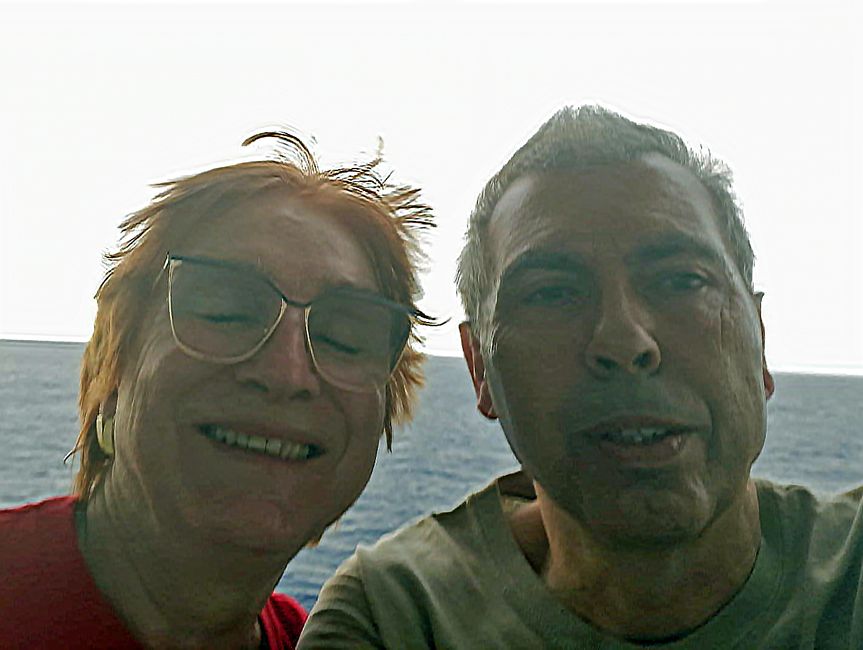
Norwegische Fjorde - Island - 2024
vakantio.de/norwegische-fjorde-island-2024
Bergen, August 22, 2024
Oñemoherakuãva: 22.08.2024
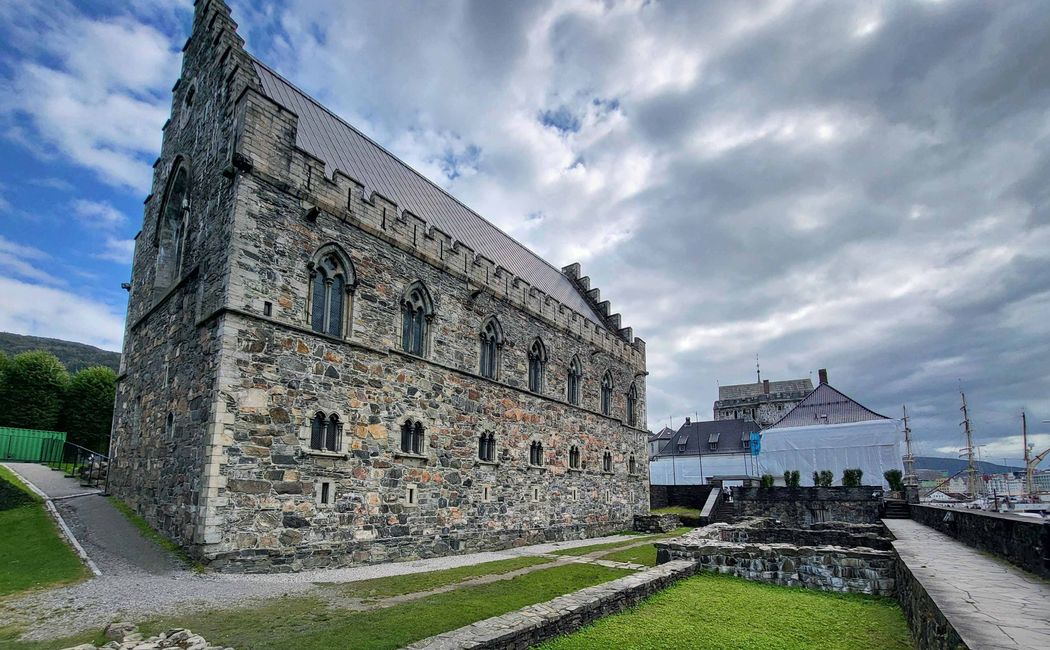
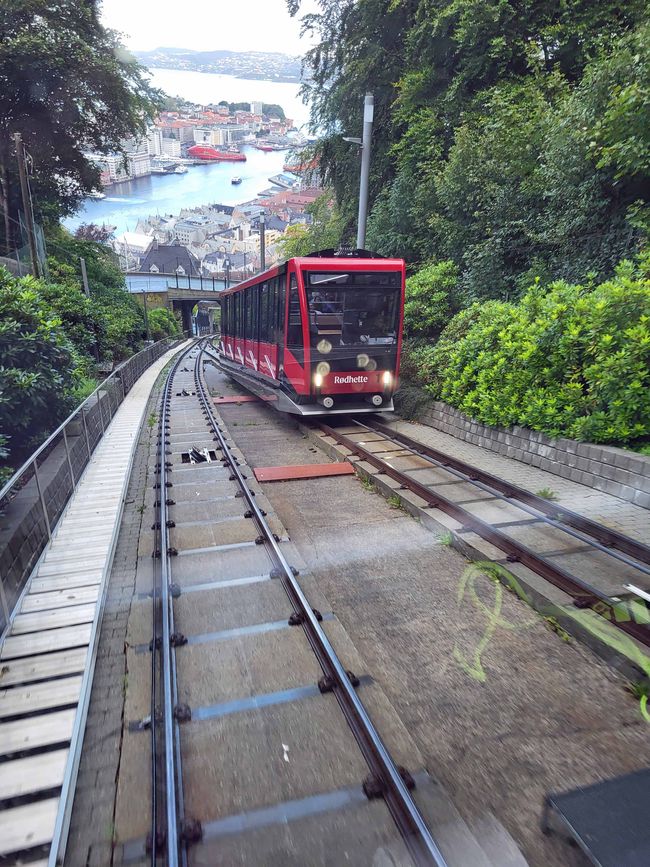
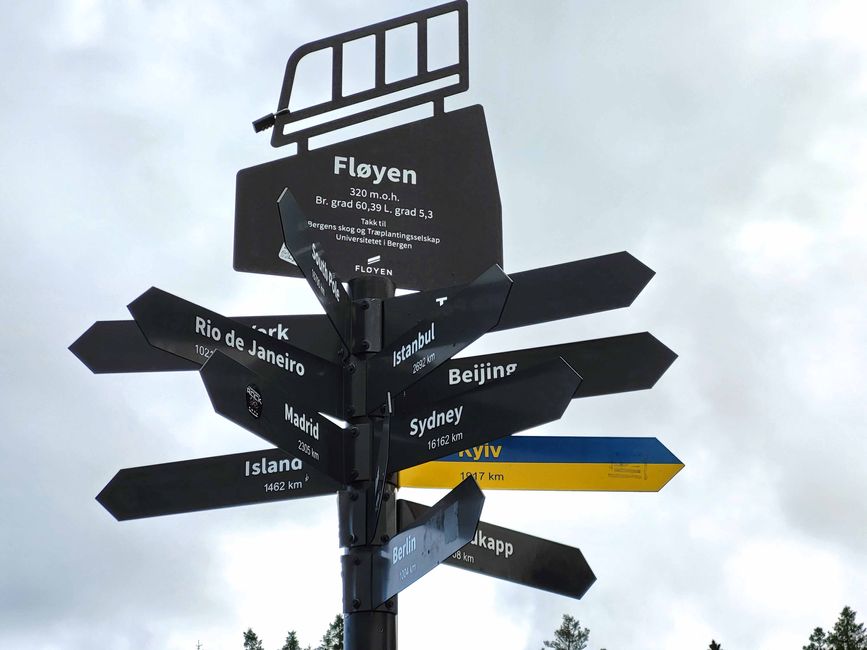
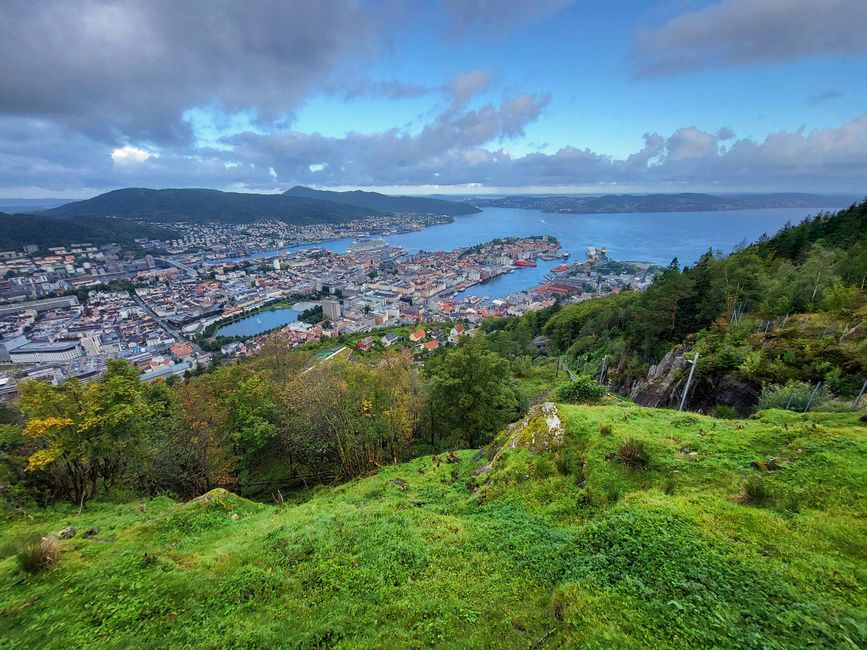
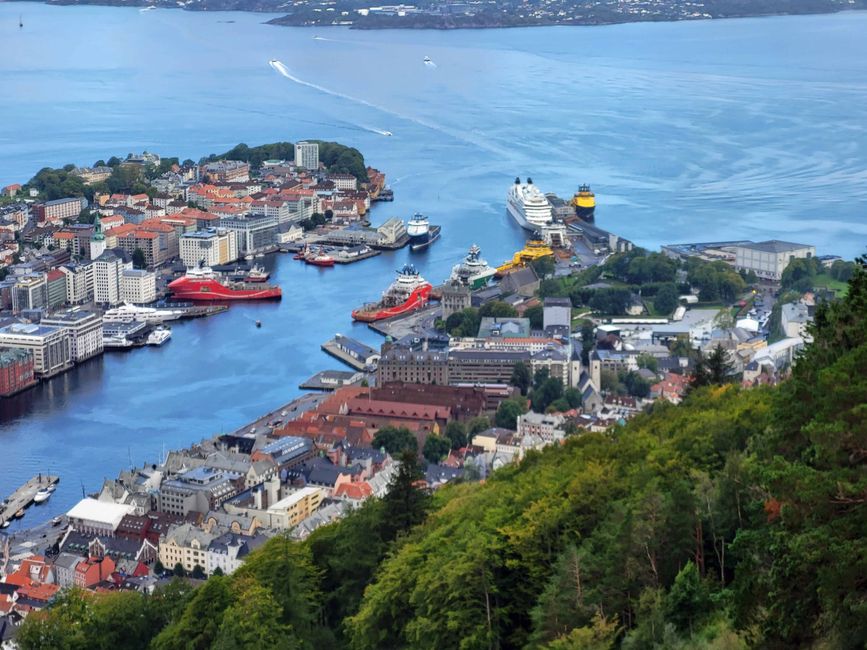
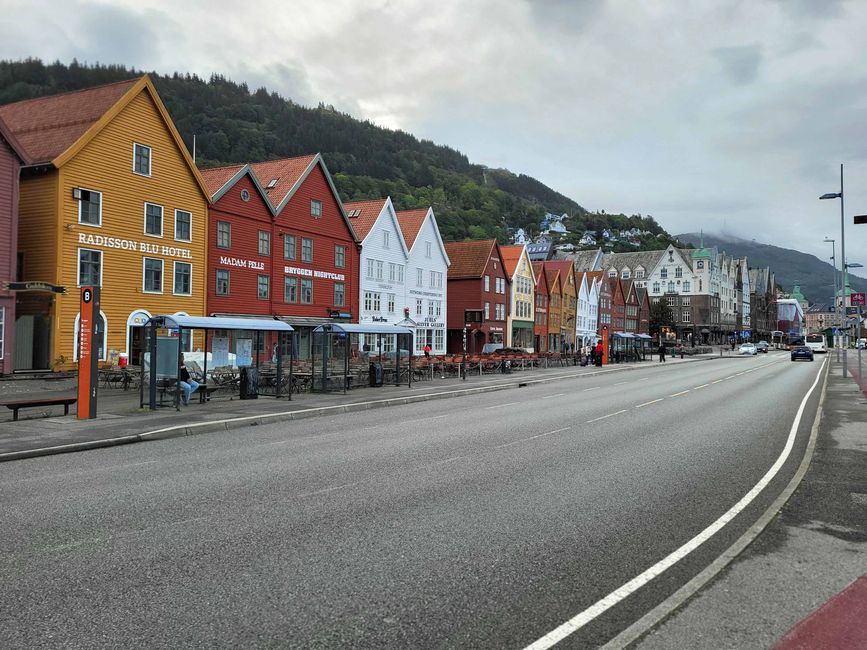
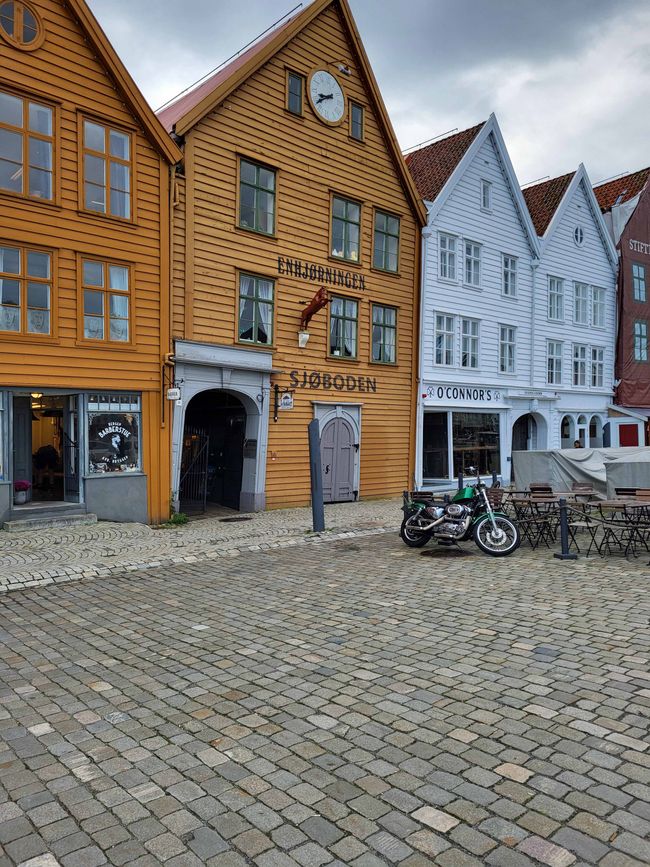
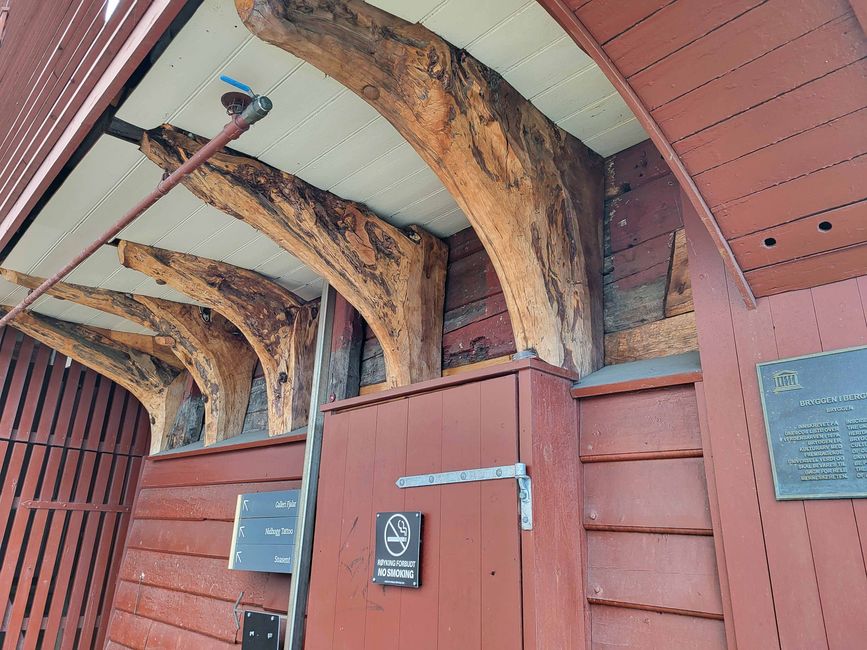
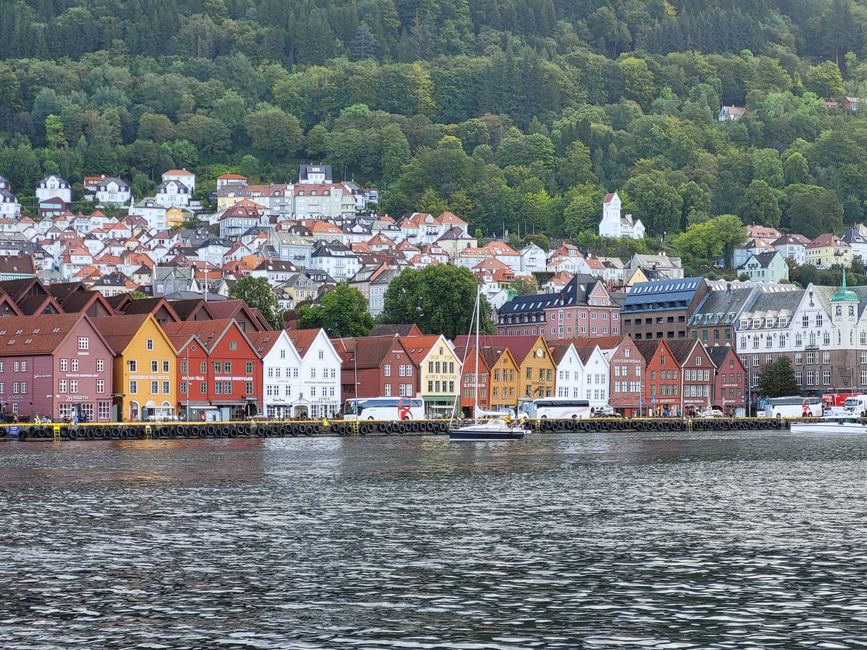
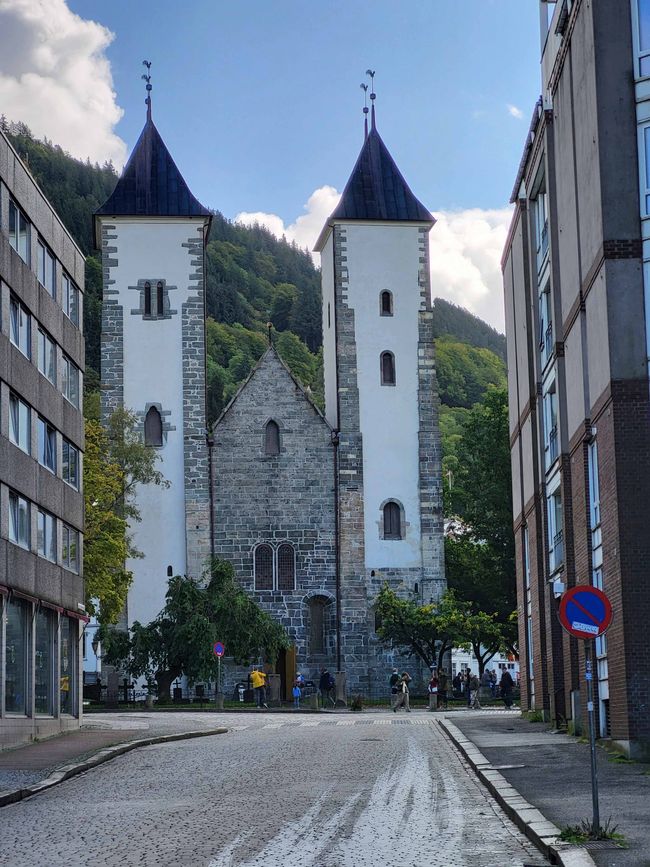
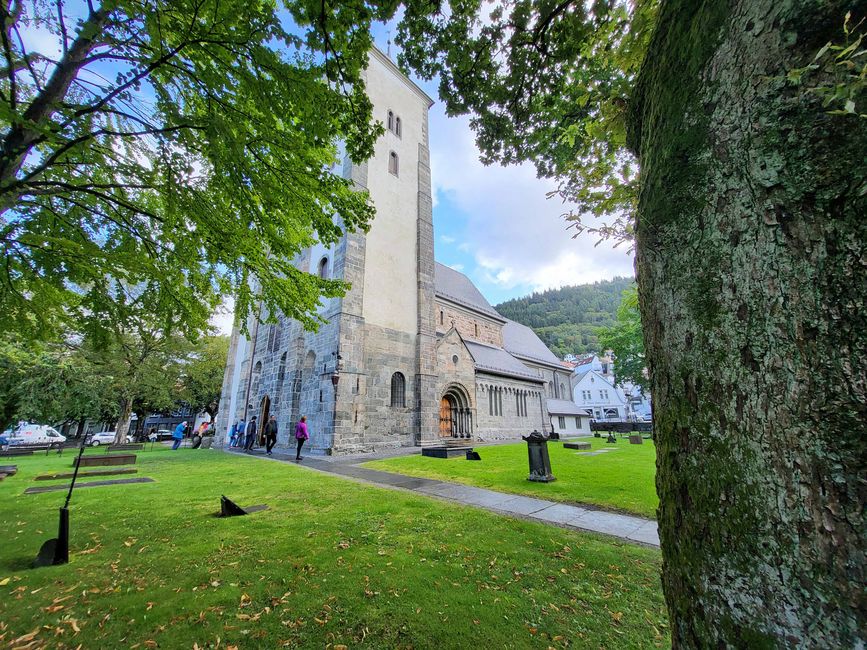
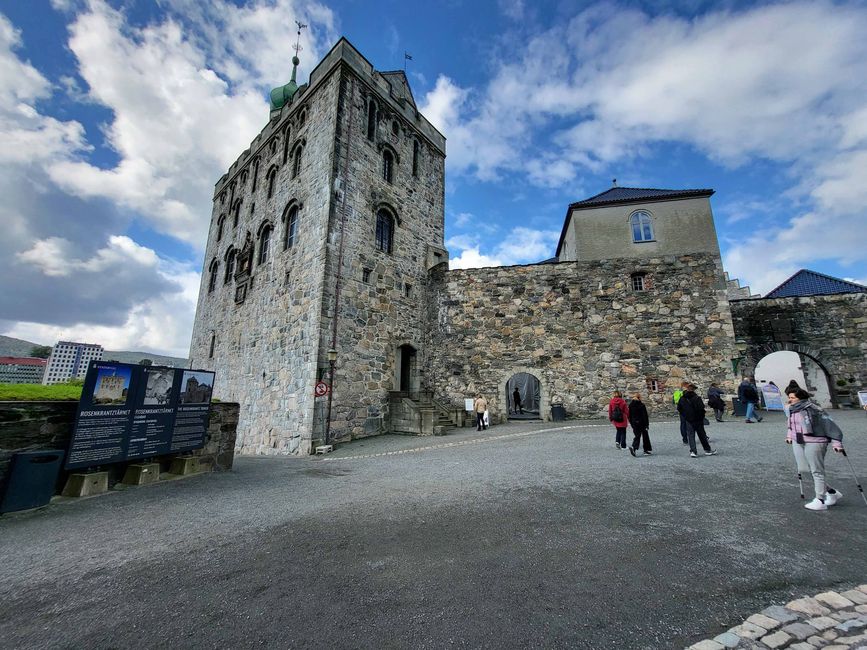
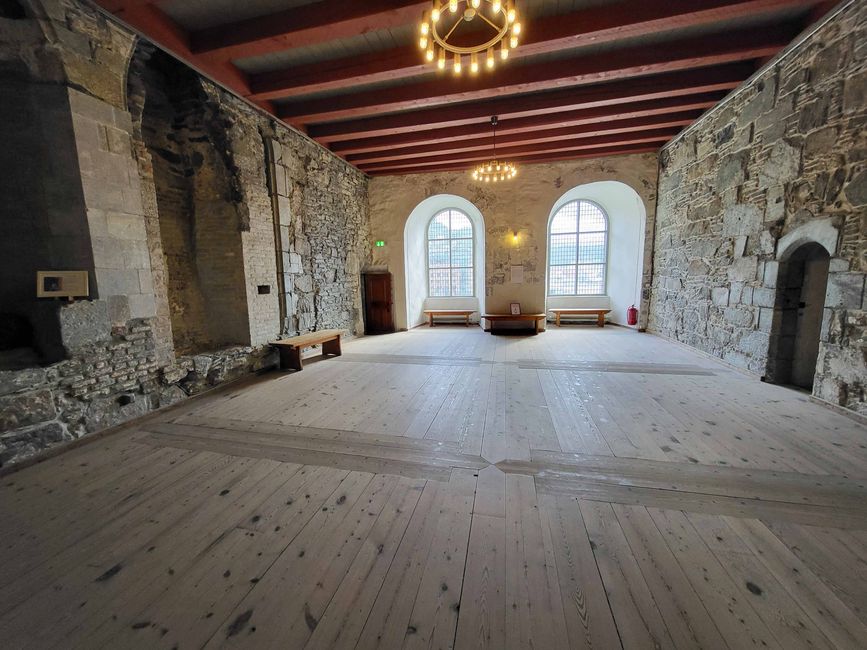
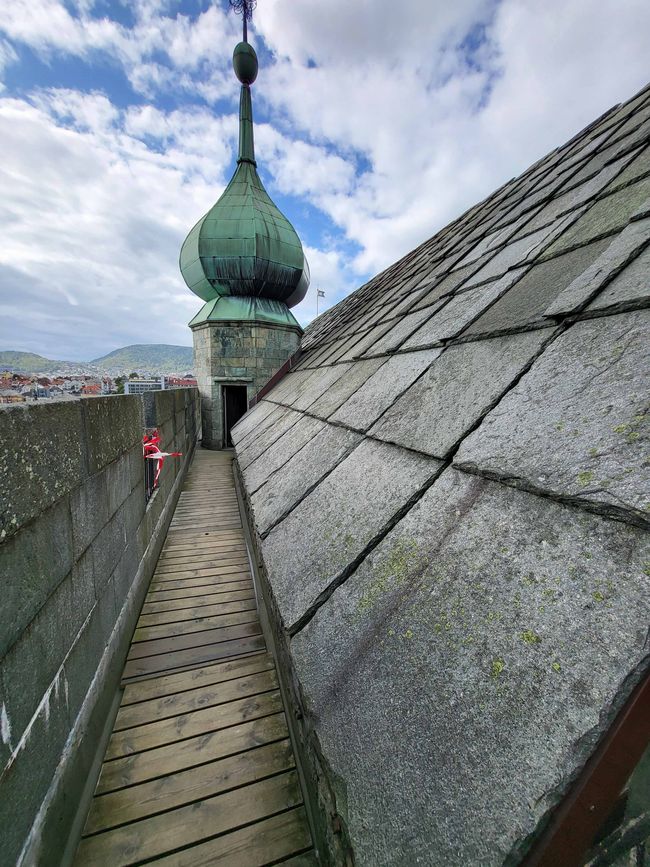
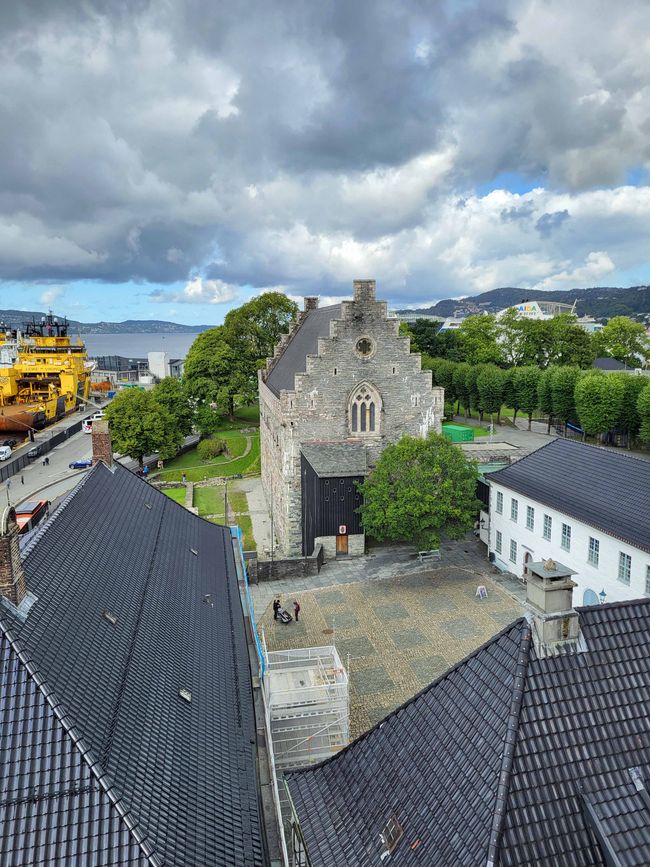
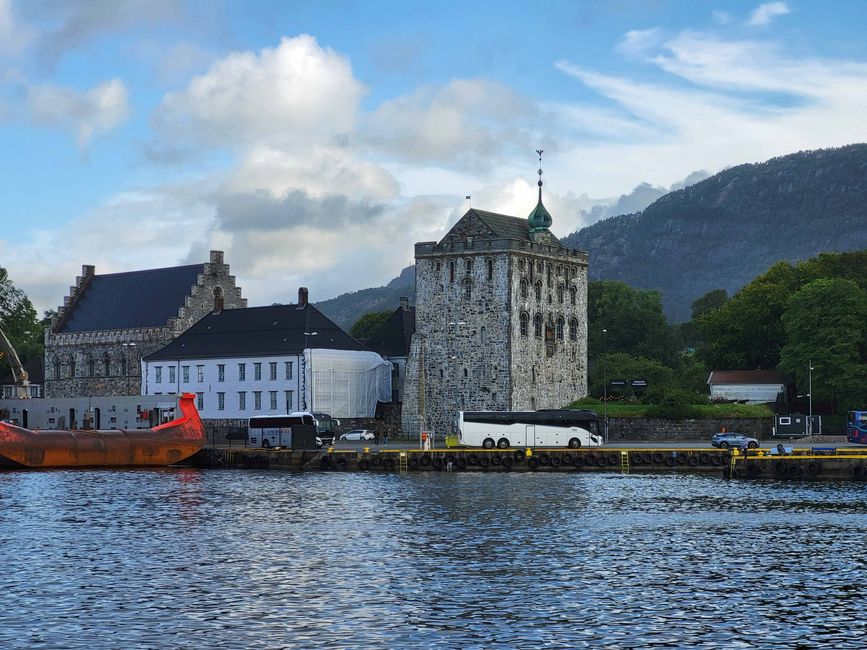
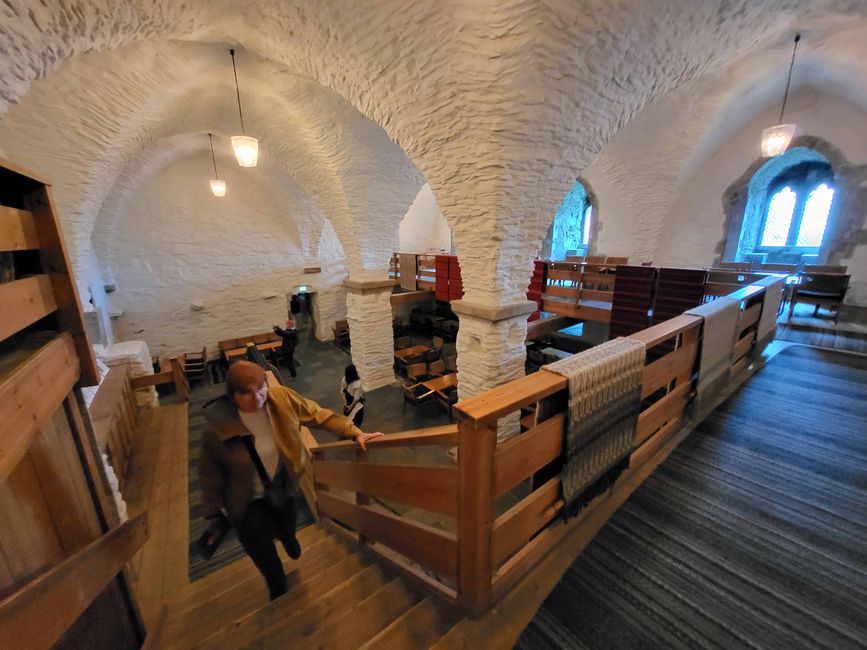
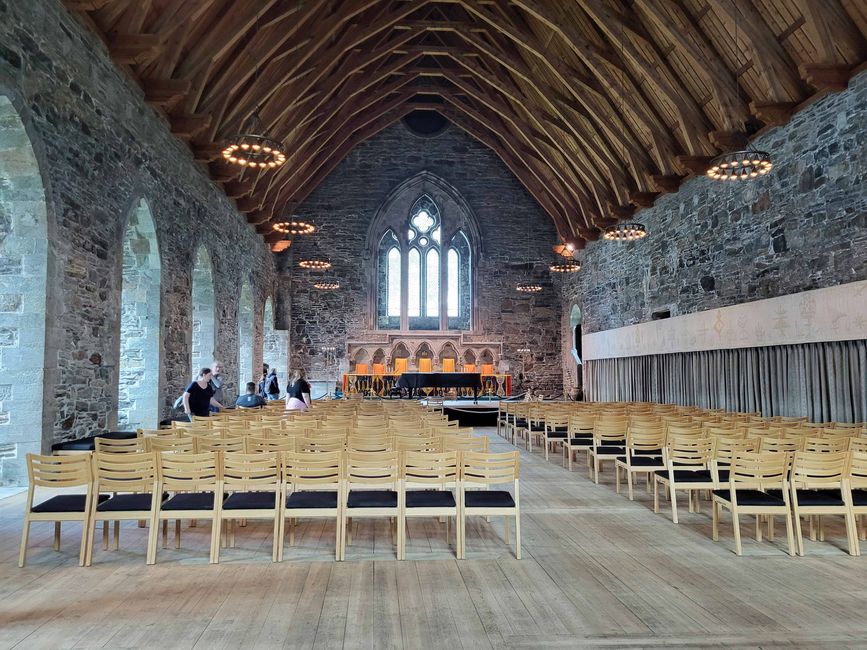
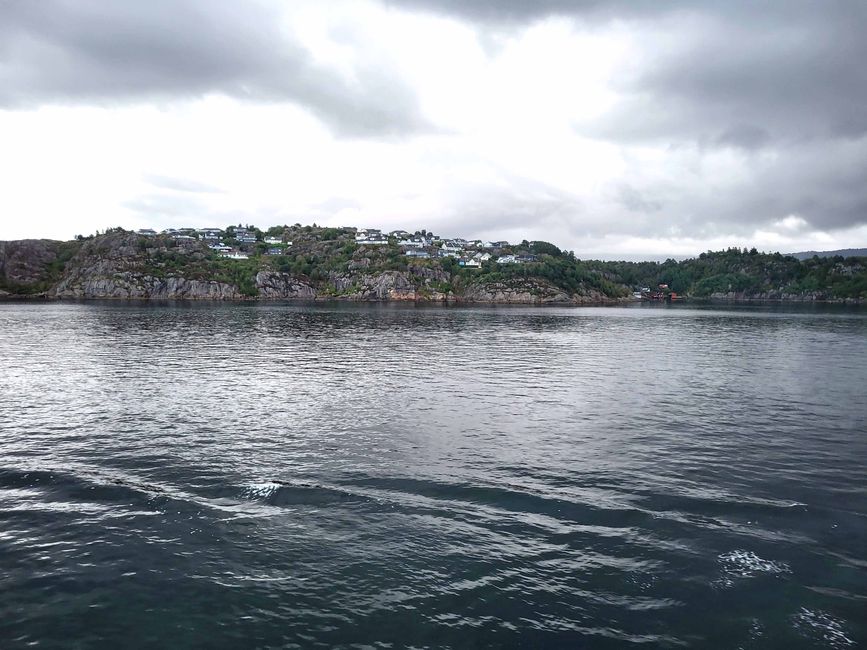
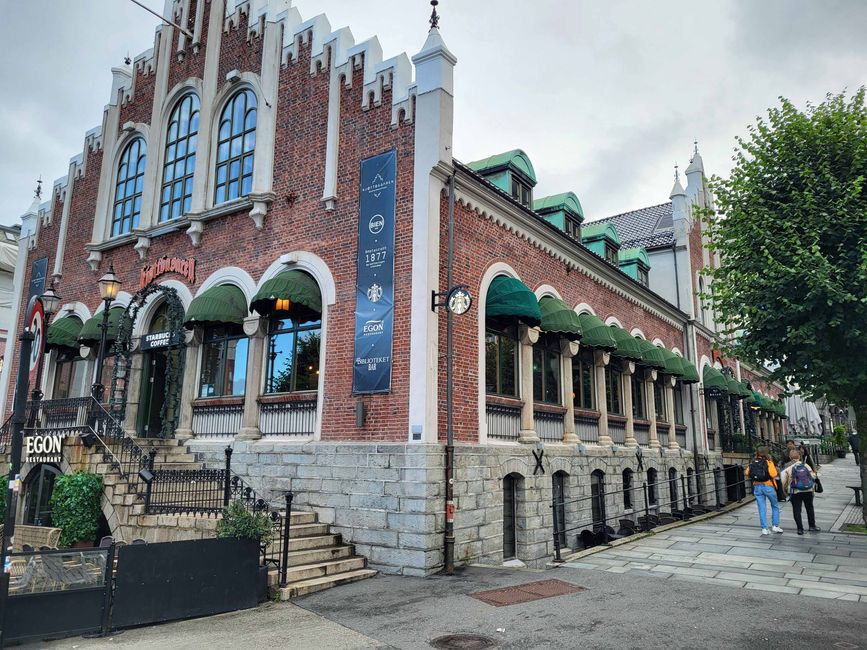
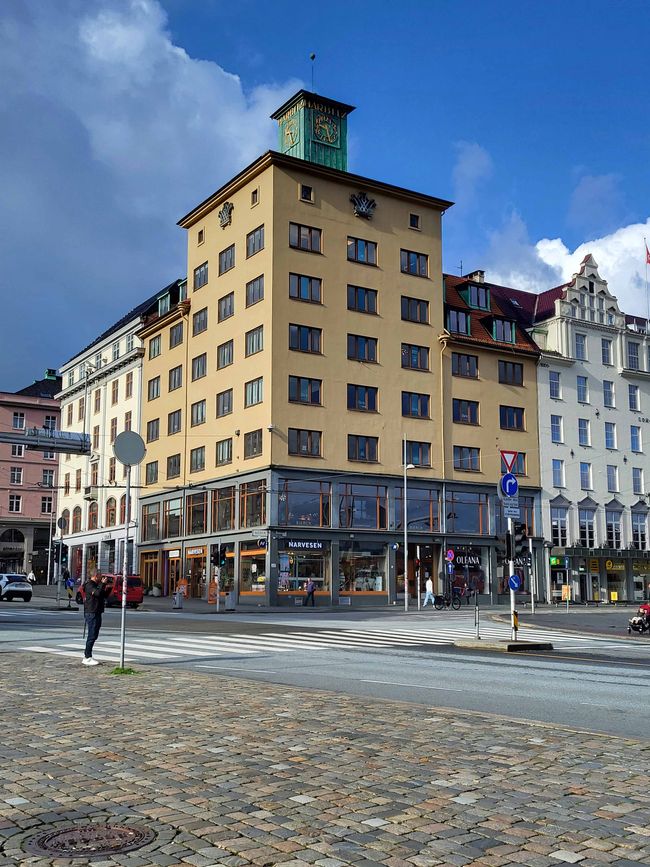
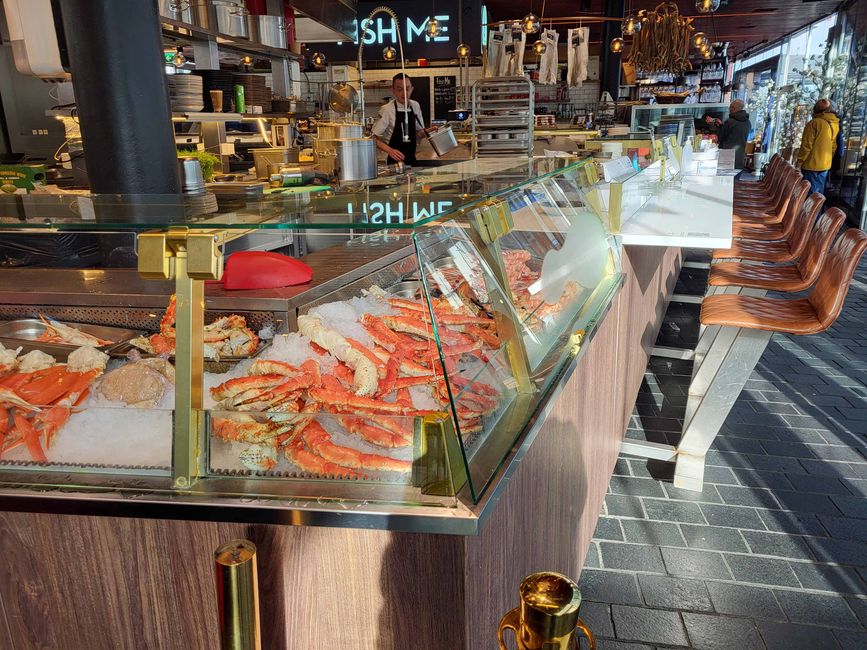
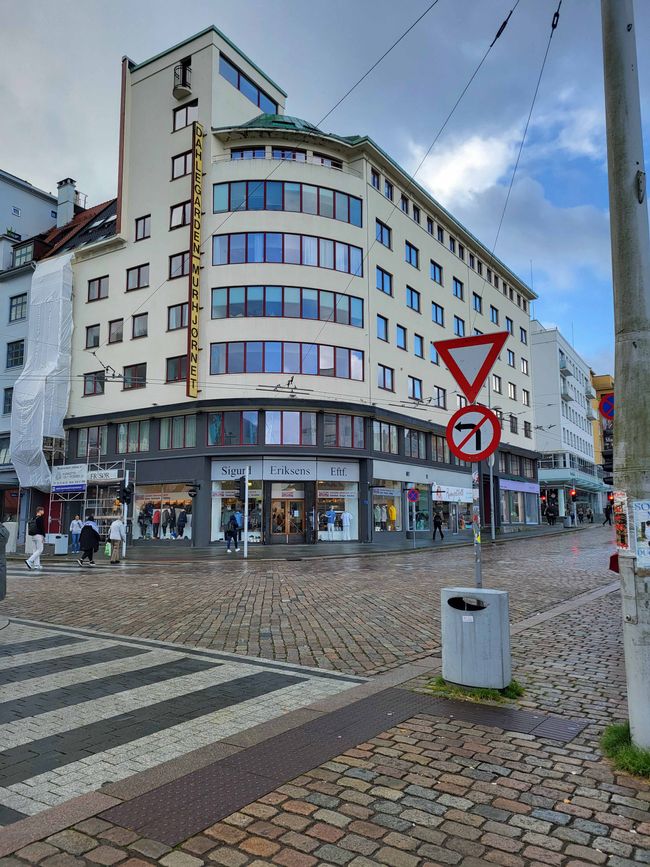
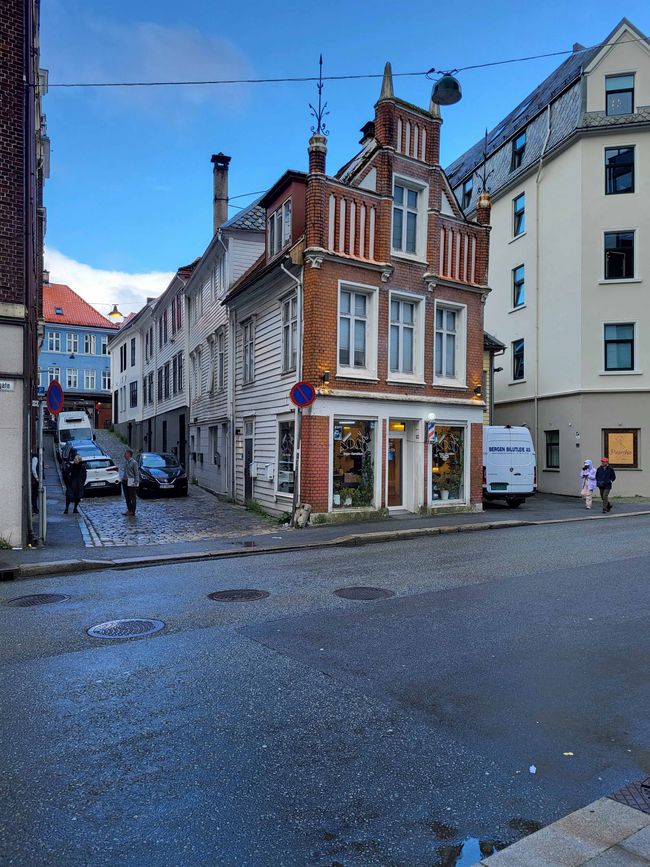
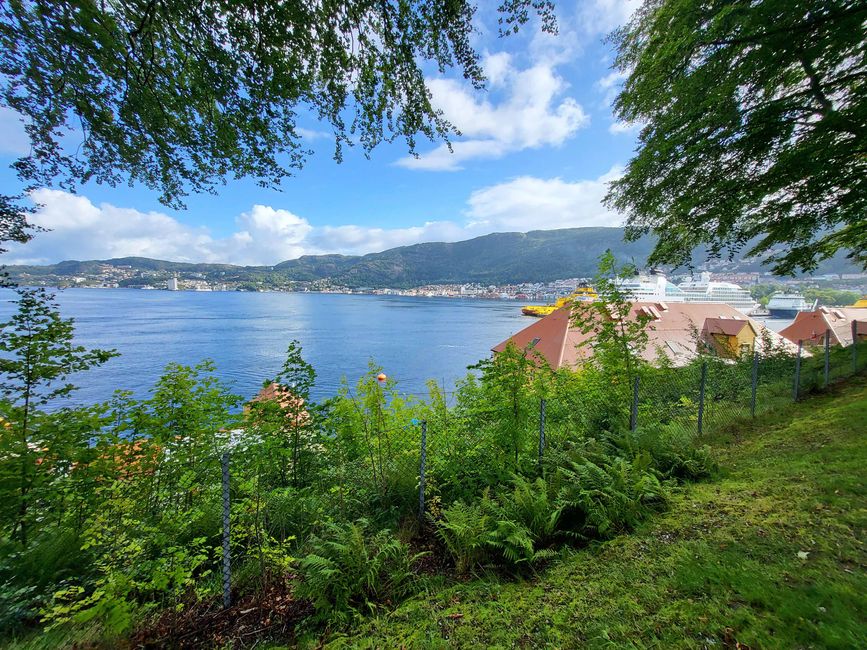
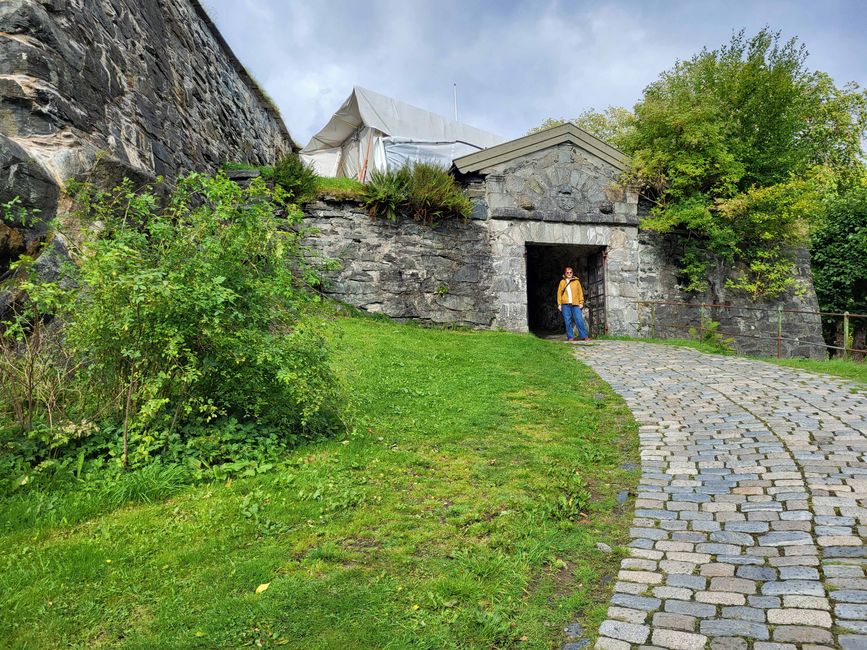
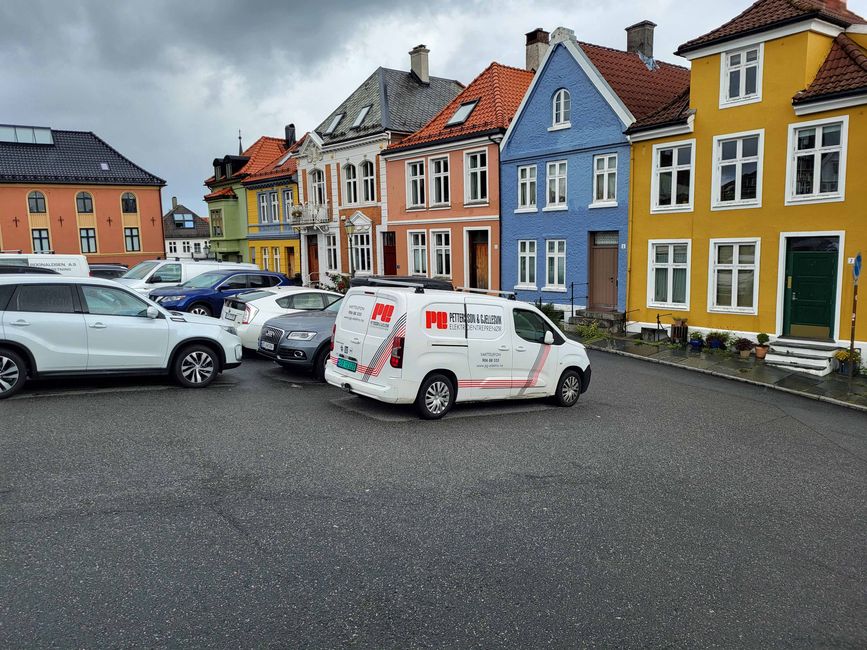
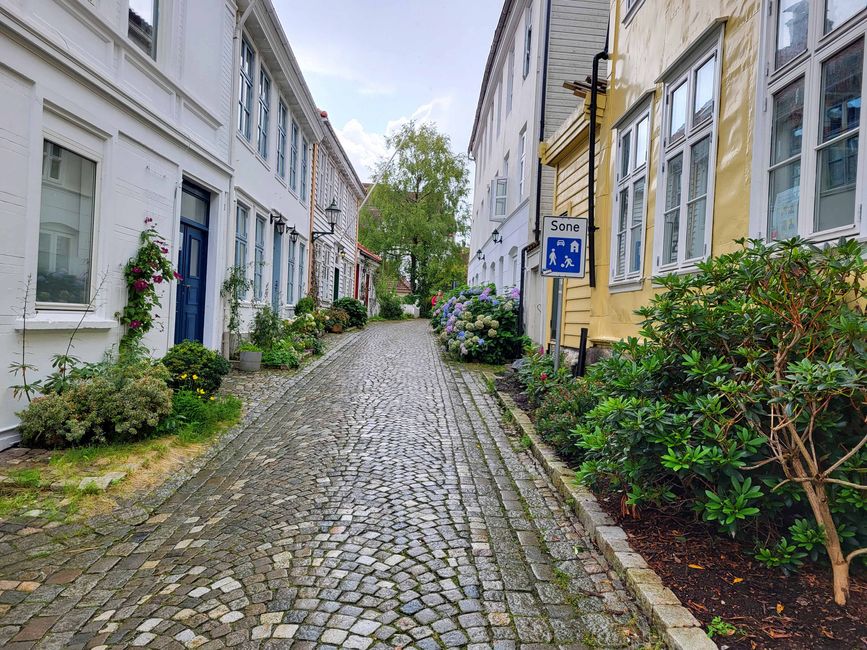
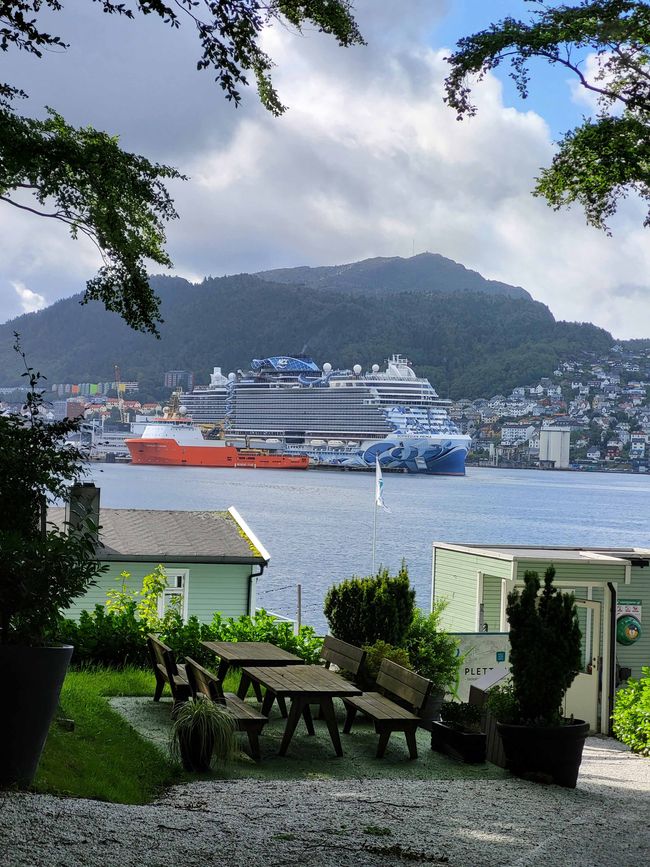
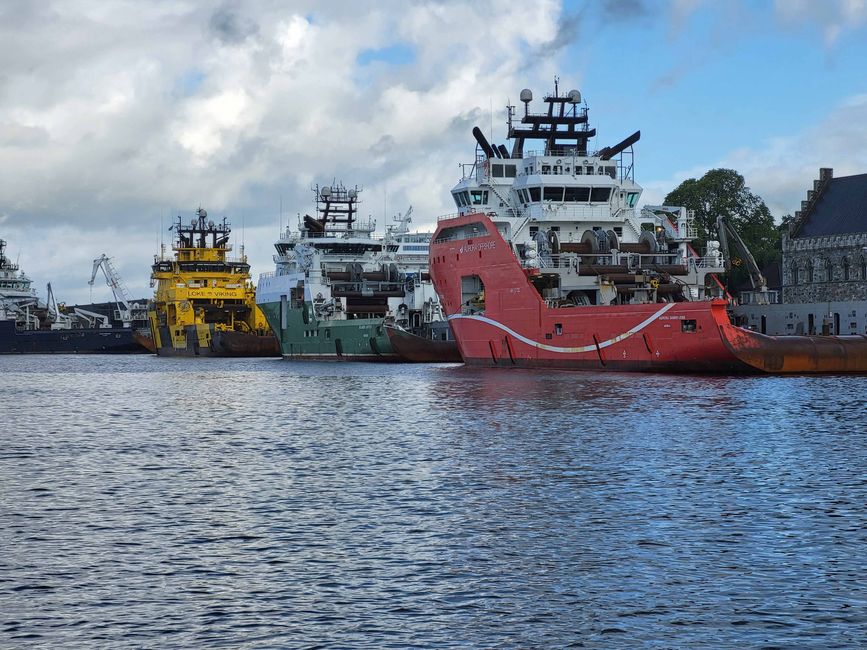
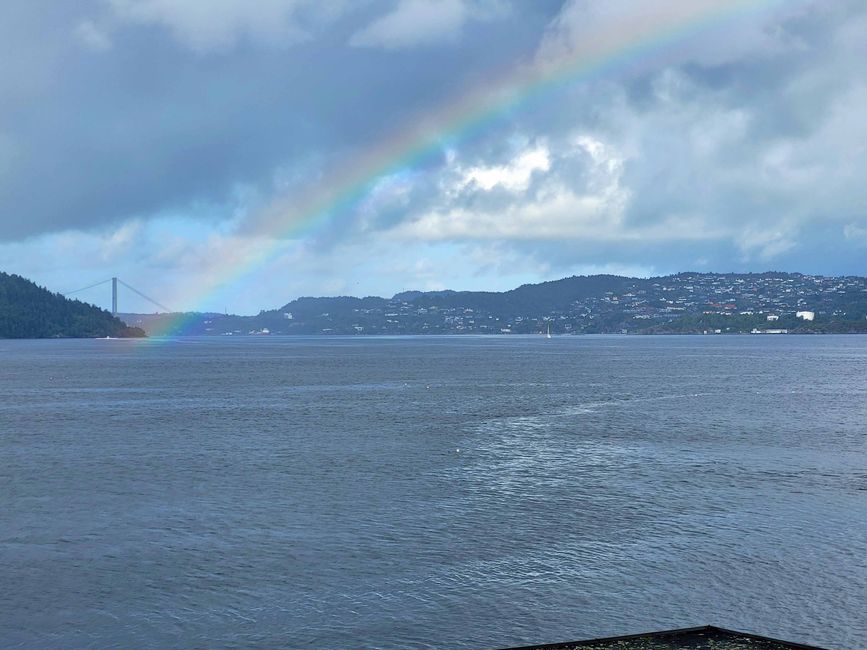
Ejesuscribi Boletín de Noticias-pe
In the city of Bergen, you can tell that it is quite large with nearly 300,000 inhabitants. It is located near the coast at the inner Byfjord. The houses also exude a sense of history and wealth - Bergen was a Hanseatic city.
Since there were also two large ships present, we immediately walked to the funicular 'Fløibanen' and took it up. The ride to the summit station Fløyen takes about 5 minutes and ascends roughly 300 meters in elevation. Here we not only had a beautiful view, but we could also confirm what the locals say: 'What do we do when it rains?: We wait three minutes.' This proved to be very true. Once it rains, then the sun shines again.
After that, we visited the main sights: The Hanseatic quarter Bryggen with the wooden houses by the harbor (UNESCO World Heritage Site), the St. Mary's Church (the oldest church in Bergen), the Bergenhus Fortress with Rosenkrantz Tower (a large fortified tower with six floors) and Håkon's Hall (part of the medieval royal court, a historical court and government building, now multipurpose halls), the Bergenhus Fortress Museum (military museum with a floor dedicated to the German occupation during World War II), the Fredriksberg Fortress (another fortress), the fish market and the various neighborhoods and viewpoints along the way. We walked our feet flat.
Bergen is also a good starting point for trips to the Norwegian fjords. You don’t necessarily have to come here by ship, but can reach some of the most beautiful fjords on a day trip from here.
Ejesuscribi Boletín de Noticias-pe
Mbohovái
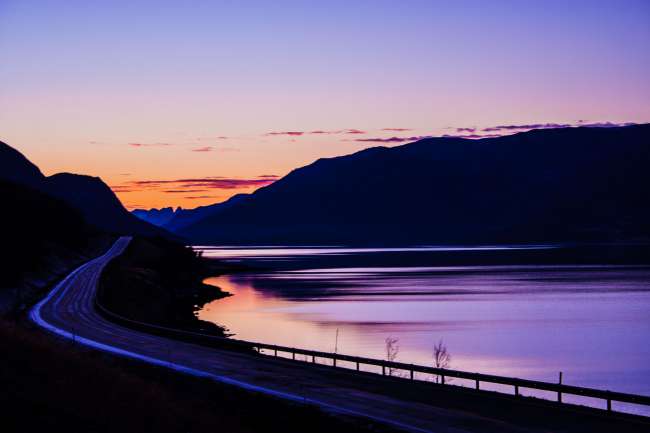
Marandu jeguata rehegua Noruega-pe
